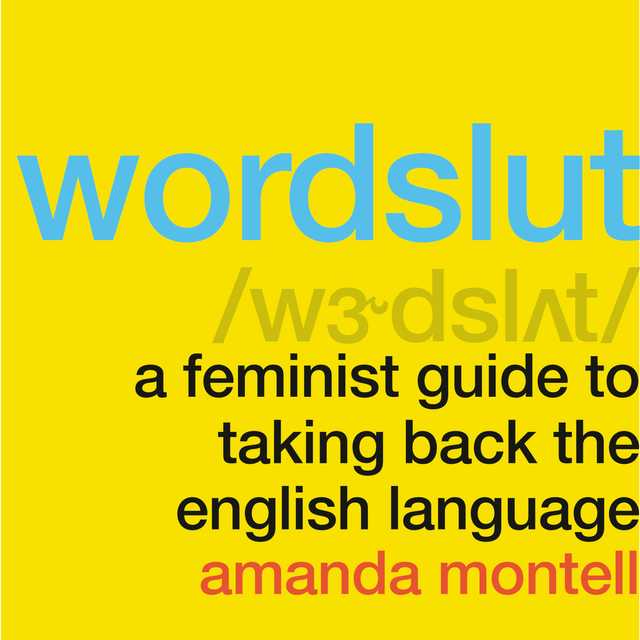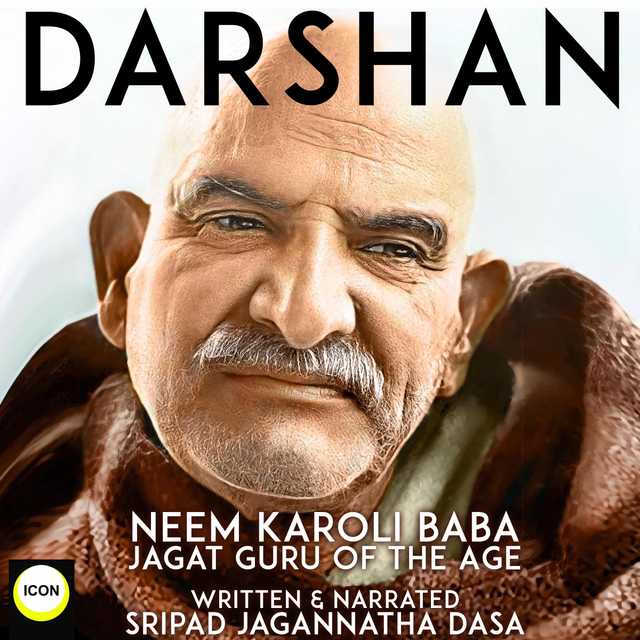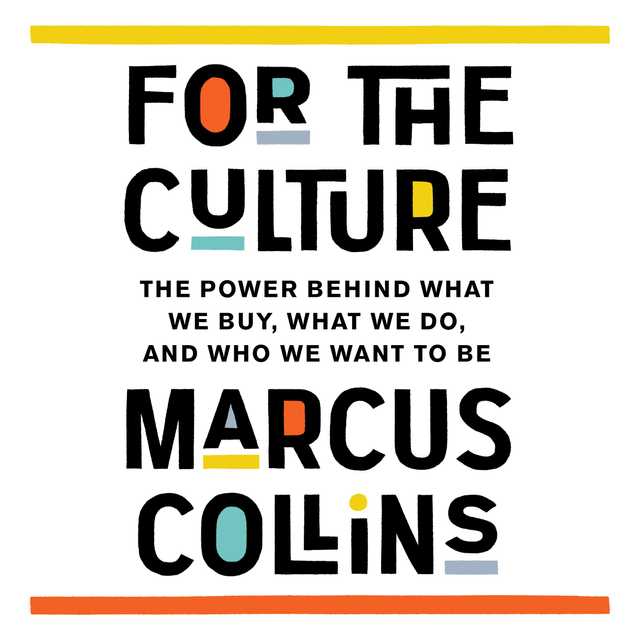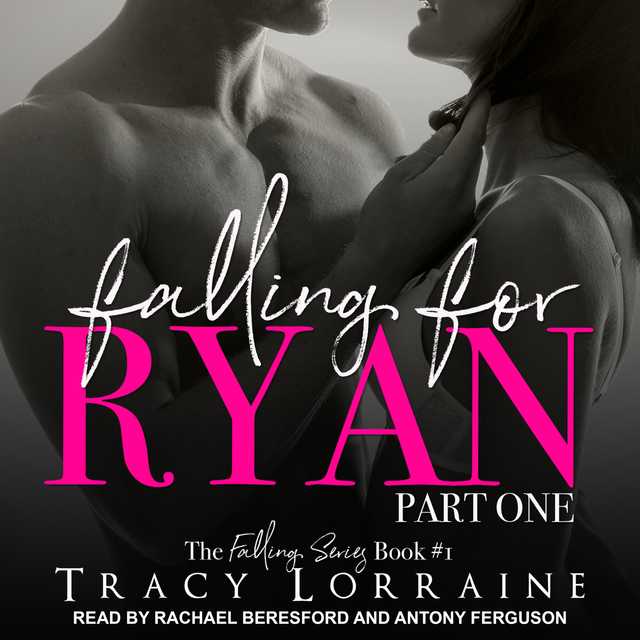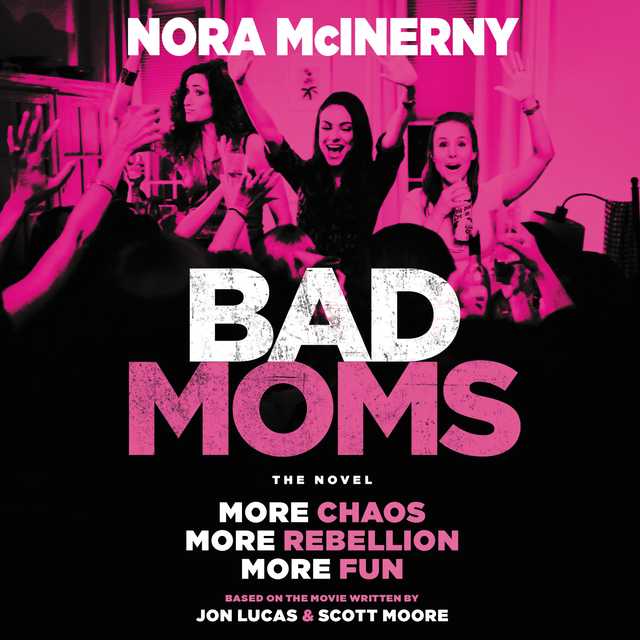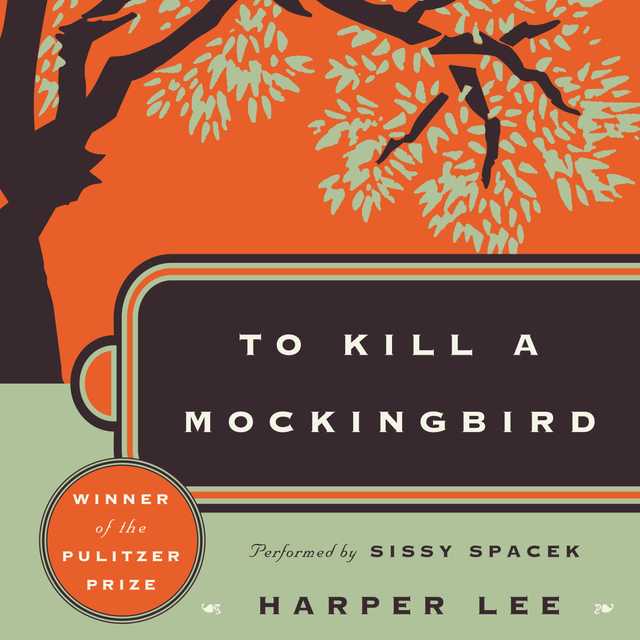Wordslut Audiobook Summary
A brash, enlightening, and wildly entertaining feminist look at gendered language and the way it shapes us, written with humor and playfulness that challenges words and phrases and how we use them.
“I get so jazzed about the future of feminism knowing that Amanda Montell’s brilliance is rising up and about to explode worldwide.”–Jill Soloway
The word bitch conjures many images for many people, but it is most often meant to describe an unpleasant woman. Even before its usage to mean a female canine, bitch didn’t refer to gender at all–it originated as a gender-neutral word meaning genitalia. A perfectly innocuous word devolving into a female insult is the case for tons more terms, including hussy–which simply meant housewife–or slut, which meant an untidy person and was also used to describe men. These words are just a few among history’s many English slurs hurled at women.
Amanda Montell, reporter and feminist linguist, deconstructs language–from insults and cursing, gossip, and catcalling to grammar and pronunciation patterns–to reveal the ways it has been used for centuries to keep women and other marginalized genders from power. Ever wonder why so many people are annoyed when women talk with vocal fry or use the word like as a filler? Or why certain gender-neutral terms stick and others don’t? Or where stereotypes of how women and men speak come from in the first place?
Montell effortlessly moves between history, science, and popular culture to explore these questions and more–and how we can use the answers to effect real social change. Montell’s irresistible humor shines through, making linguistics not only approachable but both downright hilarious and profound, demonstrated in chapters such as:
- Slutty Skanks and Nasty Dykes: A Comprehensive List of Gendered Insults
- How to Embarrass the Shit Out of People Who Try to Correct Your Grammar
- Fuck it: An Ode to Cursing While Female
- Cyclops, Panty Puppet, Bald Headed Bastard and 100+ Other Things to Call Your Genitalia
Montell effortlessly moves between history and popular culture to explore these questions and more. Wordslut gets to the heart of our language, marvels at its elasticity, and sheds much-needed light into the biases that shadow women in our culture and our consciousness.
Supplemental enhancement PDF accompanies the audiobook.
Other Top Audiobooks
Wordslut Audiobook Narrator
Amanda Montell is the narrator of Wordslut audiobook that was written by Amanda Montell
Amanda Montell is a writer and reporter from Baltimore with bylines in Marie Claire, Cosmopolitan, Woman’s Day, The Rumpus, Byrdie.com, and WhoWhatWear, where she is the staff features editor. As a pop linguist, Amanda’s insights have been featured in Glamour, Bustle, Refinery29, Hello Giggles, and Bust Magazine. Amanda graduated from NYU with a degree in linguistics. She lives in Los Angeles. Find her on Instagram @amanda_montell.
About the Author(s) of Wordslut
Amanda Montell is the author of Wordslut
More From the Same
- Author : Amanda Montell
- Cultish
- Publisher : Harper Wave
- The Body Book
- The Disease Delusion
- Supersurvivors
- Epic Measures
- In A Dark Wood
Wordslut Full Details
| Narrator | Amanda Montell |
| Length | 6 hours 56 minutes |
| Author | Amanda Montell |
| Category | |
| Publisher | Harper Wave |
| Release date | May 28, 2019 |
| ISBN | 9780062932693 |
Subjects
The publisher of the Wordslut is Harper Wave. includes the following subjects: The BISAC Subject Code is Language Arts & Disciplines, Linguistics, Sociolinguistics
Additional info
The publisher of the Wordslut is Harper Wave. The imprint is Harper Wave. It is supplied by Harper Wave. The ISBN-13 is 9780062932693.
Global Availability
This book is only available in the United States.
Goodreads Reviews
daniella ❀
January 22, 2023
filed under: books that should be taught in schools
leah
August 01, 2021
this book was educational AND entertaining, which i always love in a non-fiction. i was a bit apprehensive to read this at first as my knowledge of linguistics is v limited, but montell explains everything in such a clear, concise, and witty way, which makes it so accessible and actually fun to read. i learned so much about how language has been/still is used to marginalise women and other minority groups - from the history of insults aimed at women and LGBTQ+ people, fighting back against the criticisms of women’s speech patterns (such as vocal fry, saying ‘like’ and ‘you know’ a lot), and the type of language we use when discussing women in the public sphere (as well as much more). definitely required reading!
Laura
January 08, 2020
Extremely thought provoking, I'd like to read a few more reviews on this one.A sampling of the chapter titles so you know what you're getting into: • Slutty Skanks and Nasty Dykes: A Comprehensive List of Gendered Insults• Piss Off Bro: Linguists Explain What Locker Room Banter Really Is• How to Embarrass the Shit Out of People Who Try to Correct Your Grammar• Fuck It: An Ode to Cursing While Female• Cyclops, Panty Puppet, Bald Headed Bastard and 100+ Other Things to Call Your Genitalia
Emir
November 18, 2019
Este libro de no-ficción ofrece una mirada feminista al uso cotidiano que le damos al inglés y explora los orígenes de tales usos. Deconstuye el idioma y lo analiza desde raíz: desde los insultos, los chismes, el acoso callejero, la gramática y la pronunciación, para mostrar como el lenguaje ha sido utilizado durante siglos para mantener las mujeres, y otros géneros, fuera del poder.También ofrece alternativas y maneras de solucionar esta desigualdad, por lo menos desde la parte lingüística. Con una prosa sencilla y sumamente chistosa, es tan ameno que ni te das cuenta que estás leyendo un ensayo de casi 300 páginas.Si bancas al feminismo y sos un frinki de la lingüística como yo, éste libro es OBLIGATORIO.
Nathan
May 06, 2022
Great audiobook. Probably better than Cultish. It’s incredible interesting and the author is a great explainer and such a talented narrator. Definitely worth picking up (especially the audiobook which you can find on Scribd)
Cristine (taylor’s version) ♡
August 28, 2022
This is a book I’d definitely gift to everyone if given the chance.
Mary
November 23, 2019
PLEASE EVERYONE READ. signed, a wordslut
Flybyreader
February 04, 2021
“People tend to think of prescriptive grammar—that’s the grammar your English teacher made you learn—as this almighty, unchanging force that has been there forever, like gravity or the sun. We forget that grammar rules are a human invention, and they’re constantly evolving.”This here is one of the best examples of feminist books even though it does not really try to be one. Linguistics is a passion of mine and Amanda Montell creates a well-researched, elegantly-constructed and balanced nonfiction on the patriarchal and misogynistic effects on the everyday language. Each chapter provides insightful information as to how language evolved over time and the author approaches the issue from sociolinguistic point of view, which fascinated me throughout the book. I loved the insights on gender-biased insults, grammar corrections, language of marginalized groups, the naturally patriarchal evolution of language, the challenges women face without even noticing when they open their mouths to speak (including mansplaining).An amazing reference book that will inspire you to read related books and researches, a feminist book without the rage and hatred most “feminist” books offer, a fantastic linguistic feast with a female point of view. Loved it!
Dannii
August 23, 2022
After adoring this author other non-fiction title, Cultish: The Language of Fanaticism, I was eager to begin this book, which explored how gendered language has become and the ways in which wording associated with females often becomes slurs were as those associated with males often denotes power, instead. For example, swear words seem harsher when they refer to female, as opposed to male, genitalia. Why is this??I appreciated the broad topics discussed, as well as how the roots for many of the included words were also provided. It instructed the reader on how to do better, regarding their own speech, and how to reclaim language for their own purposes and not to degrade others.
Ari
March 30, 2019
Well this spoke right my nerdy soul. I'm a sucker for any book that's going to tackle any subject (such as language, in this case) with a historical lens, a heavily humorous tone, and a healthy dose of deconstructing social norms. Could there have been more intersectionality in the points made? Of course. And, I was pleased and relieved to see how many voices / experiences that were brought to the forefront (read: this isn't all about straight, cis, white ladies and gents). I had a lot of fun reading this and feel its breadth prepared me to move onward to further exploring the wild world of sociolinguistics. If you're looking to take a critical lens to your everyday language usage (or how words are used around you), this book is for you. If you're looking for a bunch of nerdy word fun facts, this book is also for you. And, most importantly, if you're looking for another tool in your belt on how to start conversations about dismantling the patriarchy, this book is for YOU. (And then keep reading because 300ish pages isn't enough to cover everything, let's be real).
Traci
May 10, 2021
I really enjoyed this book. The first 3/4 are stellar, the book gets a little boring by the end. I was mostly impressed by the sections around how women's language is criticized as a reflection of why women are awful and less with the ticks (things like vocal fry, "like", and "just"). This something I've been suspicious of but having Montell explain it all made me feel validated, for sure. I would have liked more intersectionality when it comes to including more instances of AAVE women and queer folks pushing the boundaries of language instead of just saying "women" as I think that leaves out a lot of nuance. Overall really enjoyed.
fatma
July 12, 2019
3.5 starsmontell's writing and audiobook narration are delightful.
Brittany (whatbritreads)
February 01, 2022
When I tell you that this was one of the most mind blowing and interesting books I have read in a long time, I’m not even exaggerating. I could not stop regurgitating information I learned from this book to everyone around me while I was reading it - I was just so fascinated by what I was learning.I had no real idea what this book was about, I’d seen it briefly mentioned once before by a mutual on TikTok so when I saw it available on audiobook in my library - I snatched it up. The title of this book alone grabbed my attention, to be honest I didn’t need to know anything else about it before I jumped straight in. And what an immaculately chosen jump that was.I am a big fan of words, I love reading them, writing them, and word games are the way to my heart. I’ve never teetered into linguistics in my life, but this made me really want to. It was so ridiculously interesting from start to finish, it had my undivided attention. Coming from a psychology background, this also just scratched a tiny academic itch I had too and the balance of research and commentary was just perfect. An amazing balance of academic yet accessible writing to the everyday reader. Things were explained so well in a way that made perfect sense, even better on audio because you could hear the different speech patterns that were being spoken about.It was well researched and cited throughout. It took a look at many different issues from a variety of perspectives, and argued both sides. It managed to be intersectional in its feminism and the way topics were discussed. Though it was so broad in the things it brought forward, it managed to also be so focused in what it was saying and really hammer down on an issue. The writing was perfectly succinct and there was no babble or unnecessary tangents, it made for a great reading experience. My attention never waned and I just found myself wanting more and more from this book. It was also unexpectedly funny, which set a great tone for reading/listening.I can’t even hype this up enough, read it - it’s so good. Life changing. Very cool.
Kay
May 11, 2021
Holy crap this is SUCH A GOOD BOOK!!!!!!I literally would recommend this book to anyone and everyone and all of my friends.In general, this book really flipped my view of "how we should speak" on its head. Basically everything at least I've been taught about "how we should speak" came from the lens of patriarchy. That sounding like a cis white straight man was the standard. When really there are so many groups (not just women, but POC, the queer community, etc) that get berated on for how they speak when in actuality the way these marginalized groups speak have their own goals, needs, and functions. As a woman, I am so empowered by this book. Holy crap all these years of being told I need to speak a certain way to be taken seriously--that was all patriarchy. Patriarchy says we need to speak like men to receive the respect men receive. In actuality, there is so much to learn from in terms of how women speak and especially amongst groups of only women. Generally, men speak with the goal to pass information. Men are described to speak to be "competitive" where they basically speak in monologues and wait for the other to interject with their own monologue (usually in a way trying to one up one another). When women speak, it's a lot more "collaborative" and about building connection and driving consensus across the group. She describes men as speaking more vertically and women speaking more horizontally. Women in particular get harped on for using "filler" words like "like" and "you know," but not only do men also use these filler words (and get less flack for it when they do), when women use these words it's for very distinct functions. Misogyny, patriarchy, and general bias towards women have labeled women and insecure and unsure of themselves which is "why" they use these filler words. When linguists actually broke it down, "like" (aside from the verb to like something or like as a simile) the filler word has 4 distinct use cases to help drive connection and build approachability in rapport. Same as "you know." You know is not a filler word, but again women reaching out to build consensus amongst the group they're speaking in. Really cool, empowering tidbits like this teaching me to not feel shame for how I speak, but that my different style (and how many women speak) is to achieve a goal outside what the patriarchy has defined.She also covers how so much of our slang and language is derived from marginalized communities. Communities with the least power had to be the most creative coming up with terms and codes to recognize one another. Holy crap I never knew even the simple phrase "24-7" specifically came from the female African American community and the first time a white TV news speaker used it, it was absolutely jarring.I also found it super interesting the study she included about how women use curse words. Whereas it's a given men will curse, women on the other hand almost always do it with intention whether it's for the sake of humor or to get a rise out of someone from the shock of a woman cursing (because expecting a man to curse is standard but a woman cursing is not).She also spends time showing how our language is a reflection of how we view gender and sex. How you could say the word penis a hundred times and never get called for it, but once you say vagina people squirm and the word must be censored. How in general sex and sexual organs and body parts are seen and from the perspective of het males and our language is not yet inclusive to folks on different parts of the spectrum or not in hetero relationships. In general, our language around sex treats the penis as strong and masculine--a weapon; and women are simply receptacles, the vagina is passive and only existing to receive the penis. Hence why "penetration" evokes the definition of sex--it's literally been defined from only the man's point of view centered around men's completion. To give an example of what it might be like if we built language around women and female pleasure instead of man's, we might say "envelopment" instead. Or if vaginas evoked as much power as penises, we might yell at offenders in our fury "suck my clit" instead of "suck my dick." In fact, I will no longer be referring to penetration as sex, but using envelopment instead. :PSo yeah, lots of good stuff in here. I admit, it was probably especially delightful for my personal consumption as it feeds into and reinforces a lot of my own opinions about the patriarchy and society. I'm totally the target audience and I ate it up as such. All in all, this book is fun with lots of novel and interesting tidbits into linguistics. Her analysis on linguistics as it reflects society adds to the flare and fun.Go get this book, read it, empower your inner feminist, and stay woke, my friends.
Most Popular Audiobooks
Frequently asked questions
Listening to audiobooks not only easy, it is also very convenient. You can listen to audiobooks on almost every device. From your laptop to your smart phone or even a smart speaker like Apple HomePod or even Alexa. Here’s how you can get started listening to audiobooks.
- 1. Download your favorite audiobook app such as Speechify.
- 2. Sign up for an account.
- 3. Browse the library for the best audiobooks and select the first one for free
- 4. Download the audiobook file to your device
- 5. Open the Speechify audiobook app and select the audiobook you want to listen to.
- 6. Adjust the playback speed and other settings to your preference.
- 7. Press play and enjoy!
While you can listen to the bestsellers on almost any device, and preferences may vary, generally smart phones are offer the most convenience factor. You could be working out, grocery shopping, or even watching your dog in the dog park on a Saturday morning.
However, most audiobook apps work across multiple devices so you can pick up that riveting new Stephen King book you started at the dog park, back on your laptop when you get back home.
Speechify is one of the best apps for audiobooks. The pricing structure is the most competitive in the market and the app is easy to use. It features the best sellers and award winning authors. Listen to your favorite books or discover new ones and listen to real voice actors read to you. Getting started is easy, the first book is free.
Research showcasing the brain health benefits of reading on a regular basis is wide-ranging and undeniable. However, research comparing the benefits of reading vs listening is much more sparse. According to professor of psychology and author Dr. Kristen Willeumier, though, there is good reason to believe that the reading experience provided by audiobooks offers many of the same brain benefits as reading a physical book.
Audiobooks are recordings of books that are read aloud by a professional voice actor. The recordings are typically available for purchase and download in digital formats such as MP3, WMA, or AAC. They can also be streamed from online services like Speechify, Audible, AppleBooks, or Spotify.
You simply download the app onto your smart phone, create your account, and in Speechify, you can choose your first book, from our vast library of best-sellers and classics, to read for free.
Audiobooks, like real books can add up over time. Here’s where you can listen to audiobooks for free. Speechify let’s you read your first best seller for free. Apart from that, we have a vast selection of free audiobooks that you can enjoy. Get the same rich experience no matter if the book was free or not.
It depends. Yes, there are free audiobooks and paid audiobooks. Speechify offers a blend of both!
It varies. The easiest way depends on a few things. The app and service you use, which device, and platform. Speechify is the easiest way to listen to audiobooks. Downloading the app is quick. It is not a large app and does not eat up space on your iPhone or Android device.
Listening to audiobooks on your smart phone, with Speechify, is the easiest way to listen to audiobooks.

